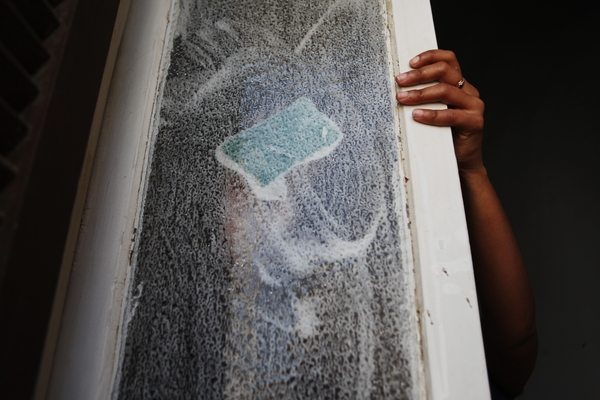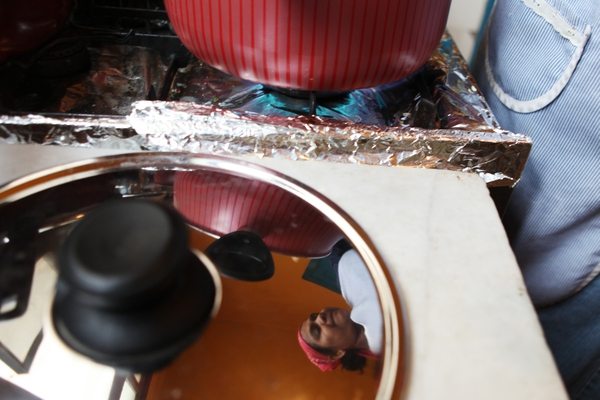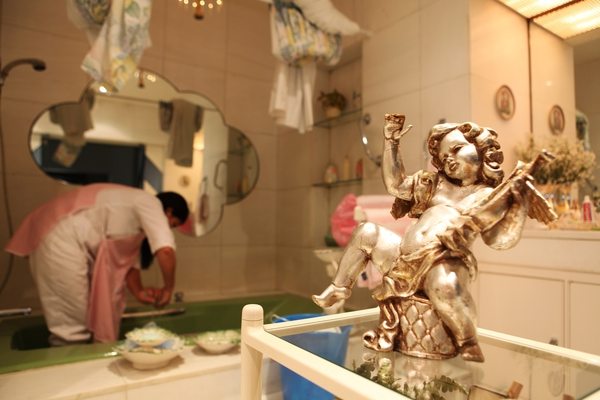“Pidgin Madam”
When Singhalese meets Arabic

This Saturday 18 December is International Migrants Day. During this week, Mashallah is publishing articles on the topic of migration, covering a few aspects of this phenomena. Today: the emergence of a new language in Beirut.
“When I realised I was able to speak Singhalese, it was already too late.” Fida Bizri has an impressive skill for languages. As a little girl, she spontaneously learned how to speak the mother tongue of her family’s Sri Lankan domestic worker. She later on became teacher of Singhalese at the famous National Institute of Oriental Languages and Civilizations, INALCO, in Paris. Bizri also spent 10 years recording conversations between Sri Lankan domestic workers and their “Madams” in Lebanon, and made several trips to Sri Lanka, in order to study a language most often referred to in the Middle-East as “broken Arabic.”
‘Pidgin Madam’ is a very creative mix of Singhalese and Arabic, used by Sri Lankan maids and their employers.
This language, which Bizri calls ‘Pidgin Madam’, is a very creative mix of Singhalese and Arabic, used by Sri Lankan maids and their employers. Spoken naturally by numerous Lebanese in contact with Sri Lankan workers, ‘Pidgin Madam’ was barely considered a language before Fida Bizri published the results of her research. “Following these Sri Lankan women over many years and describing their linguistic habits became like a personal quest for me,” explains the young researcher. “I wanted to understand why they were coming to Lebanon, what they were leaving behind and what they could possibly be winning,” she says.
A pidgin is a language by itself in which it is possible to express any idea about any topic.
Linguistics for dummies: What exactly is a pidgin?
Pidgins are simplified languages that develop between two or more groups trying to communicate while they have no common language, and relatively no time to engage in a long learning process. The acquisition of a new common language is often seen in this context as an urgent need, for economical reasons for instance. One of the differences between pidgins and creoles is that pidgins have no first generation of speakers, otherwise they would become creoles. There are other examples of pidgins-creoles around the world, a famous such being the bislama, one of the official languages of Vanuatu. Here, different communities of fishermen created a common hybrid language in order to work together.

Pidgins develop essentially out of the contact between languages of quite distant linguistic families. For example, in the Middle East, where we can see domestic workers not only from Sri Lanka but also from Amharic-speaking Ethiopia, no such pidgin was born out of the contact between Arabic and Amharic, since both languages are Semitic ones, with sometimes very similar structures. Singhalese and Arabic, on the other hand, come from very distant families (Singhalese belong to the Indo-Aryan branch of Indo-European languages). Thus, their contact gave rise to this pidgin.
Pidgins develop essentially out of the contact between languages of quite distant linguistic families.
Finally, a pidgin is not a jargon, it is not limited to a certain context. A pidgin is a language by itself in which it is possible to express any idea about any topic. “The Sri Lankan maids that I recorded in Lebanon were able to talk to me in the pidgin about their cremation rites, reincarnation, politics and future projects,” remembers Bizri. “And if there is a concept or a word they don’t know how to say, they would just paraphrase it with very creative means.”
The Pidgin Madam’s raison d’être: who uses it and why?
Pidgin Madam is born out of the contact between Sri Lankan maids and their Arabic employers in the Middle East. Its grammatical structures bear the trace of this context: a maid living in the house of her employers, with very limited access to external interaction. In the house of the employers, Madam is the main contact person, but the family’s children also play an important role in the evolution of the pidgin. “If they don’t speak Lebanese to the domestic worker, it’s because the pidgin is more handy. It’s a lot easier to make yourself understood by using the language you know will be understood,” comments Bizri.
There have been Sri Lankan workers in Lebanon since the end of the seventies. Pidgin Madam was developed because of the urge to communicate in a new social context.
Next to the characteristics it shares with other pidgins and simplified languages, what is typical of Pidgin Madam is that it uses imperative verbal forms as simple verbal bases. Instead of saying ‘he sleeps in this house’ (in Lebanese Arabic huwe bynem b-hal beit), one would say ‘he you go sleep here house’ (in Pidgin Madame huwe nemi hone bet). One explanation for this fact could be found in the type of Arabic the Sri Lankan maid is always exposed to, where imperative forms are proportionally higher that other verbal forms.

The Sri Lankan dream of building a house: At what price?
The Sri Lankan women that come to work as housemaids in the Middle East are usually married and have children. They leave their families and their country in order to gain more money and to build a concrete house in Sri Lanka. Building a house is often seen as a high and most visible achievement; the most easily measurable one as well. It becomes extremely difficult for them to reintegrate their home environment if they did not fulfill this goal, because it would be considered as a failure.
As a language, Pidgin Madam is still at an early stage of its existence, it has yet to be stabilised.
“These women come on three-year contracts. The first stay in the hosting country serves to repay the debts, the second to give hope for a better life for the family. On the third one, accidents may occur, such as the husband drinking all the money back home in Sri Lanka, or some relative falling sick and having to be financially helped, or whatever other reason. Some money may be saved on this third contract. It is on the fourth contract (12 years in total) that these women can start realising the dream for which they came to the Middle East: build a house of their own,” explains Bizri. “However, once it is built, it has to be furnished. Yet another contract to the Middle East… Meanwhile this woman, a maid in the Middle East, has actually been forced to forget that she’s a mother in Sri Lanka,” Bizri comments gloomily.
Since when? Until when? Pidgin Madam through the ages
There have been Sri Lankan workers in Lebanon since the end of the seventies. Pidgin Madam was developed because of the urge to communicate in a new social context. Today, things have changed: ‘Sri Lankan’ has now become a generic term in Lebanon to designate female domestic workers in general. However, the number of Sri Lankan maids officially residing in Lebanon has been decreasing for the last few years, and today there are less and less Sri Lankan workers, and many more Ethiopians, Philippines and Nepalese.
As a language, Pidgin Madam is still at an early stage of its existence, it has yet to be stabilised. It does not seem that it would have a first generation ever, since it is born in a very particular context where maids are living in close contact with employers with extremely limited external contact. If this situation is about to change, who knows what will happen to the language?
When asked about the future of the Pidgin Madam she studied for 10 years, Fida Bizri answers: “I’m tempted to say I’m less worried about the future of this language than about the future of these women who lose many years of their lives over a very tiny achievement.”

All pictures courtesy of Matthew Cassel.







One thought on ““Pidgin Madam””